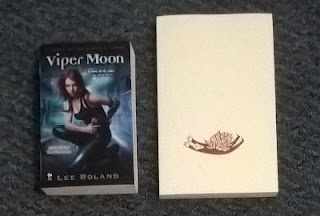With so many fantasy novels now being described as 'epic' I have discovered it can be quite difficult to find something that genuinely fits this billing. It is true that many contain some of the right elements but rarely do they really live up to the definition. However, in my humble opinion, 'The Grace of Kings' by Ken Liu, can definitely be classed as an epic.
The book follows two main characters - Kuni Garu, the seemingly carefree gambler and bandit, and Mata Zyndu, an almost inhuman warrior obsessed with honour and revenge. Their stories are separate to begin with. Kuni Garu grows up in the city, a playboy surviving on his wits and charm until he meets Jia, the woman who captures his heart and quietly propels him on to become a man of the people, fighting a tyrant as head of a rebellion. He discovers a deep-seated love of his nation, a sense of fairness and an unexpected role as a popular leader. Mata Zyndu (heavily reminiscent of Robert E Howard's Conan) is the last surviving child of a once great noble house, trained since childhood to become the ultimate fighting machine so that he may avenge his fallen family, an obsession that eventually excludes all other things. Inevitably their paths cross and become irrevocably linked.
The scale of this novel is quite extraordinary and the world building is incredibly layered, intricate without being overwhelming and is also beautifully vivid. There are strong elements of Chinese legend, Greek mythology gets more than a passing nod with the inclusion of a group of Gods who both watch from the sidelines and actively interfere with events depending on how the mood takes them. There are even elements of Steampunk thrown in with airships, kites and air battles adding to the fun.
There is a great supporting cast of small characters which, though their appearances are brief, the author manages to make pivotal to the tale: Princess Kikomo who makes the supreme sacrifice to save her people; Jia, the wife who inspires and helps to lead; Gin Mazoti, the fiercely independent woman who becomes the ultimate military strategist; Luan, the inventor who becomes a trusted advisor. The writing is graphic where it needs to be, especially during the huge battle scenes, but Mr Liu handles the gentler side of life with a nice sense of compassion.
Essentially (for me anyway) this is a novel about power and corruption. It encompasses the misery common man experiences when faced with a tyrant, how power can change a person both when it is gained and when lost. It is a study of the lengths we can go to exact revenge and how a good person can be driven to acts of pure evil.
All that aside, this is quite simply a fantastic, sweeping, truly Epic saga. Long but absolutely worth setting aside some time for, I would recommend 'The Grace of Kings' to anyone.









